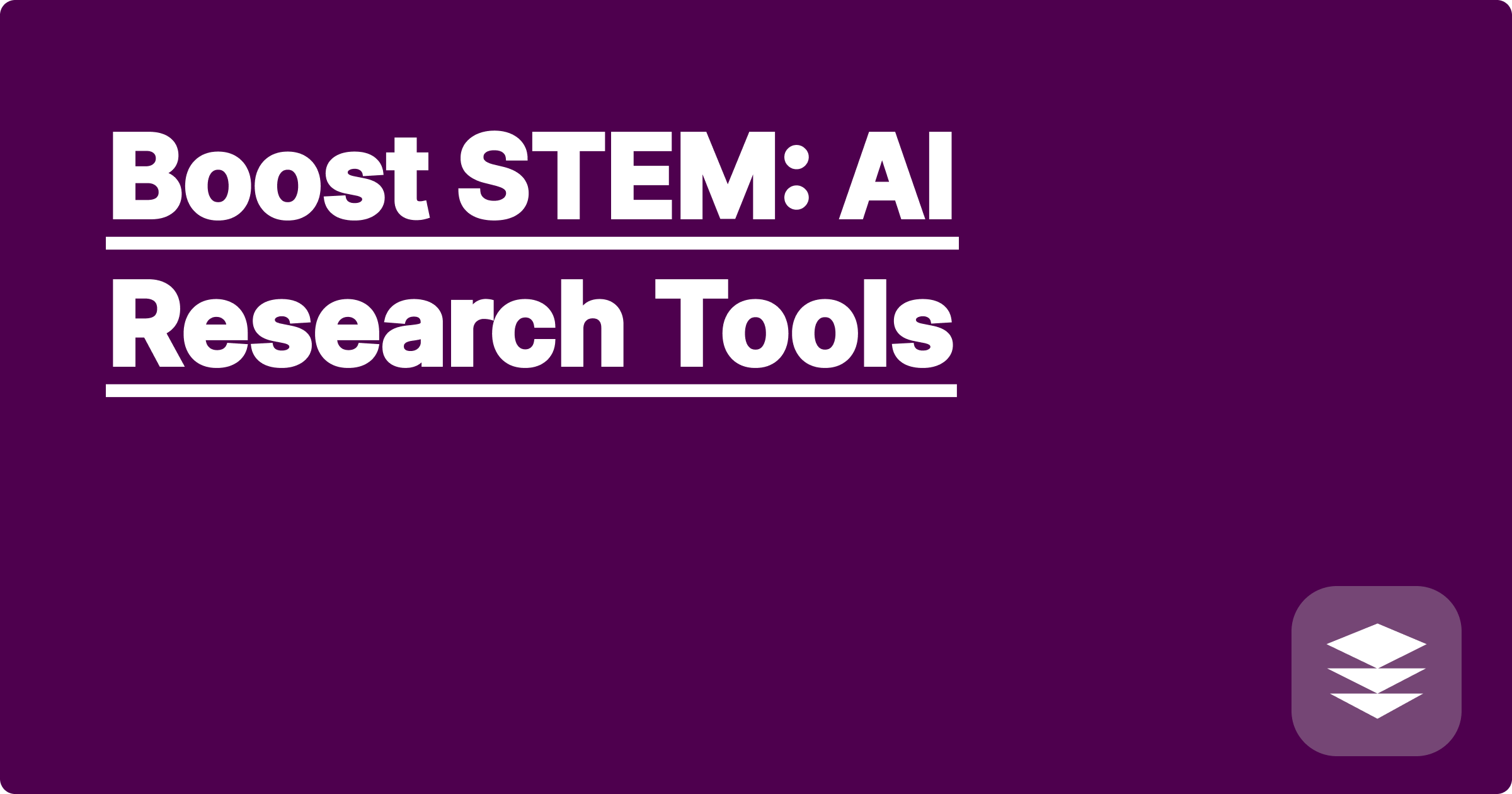
The rapid advancement of STEM fields presents both exciting opportunities and formidable challenges. Researchers and students face increasing pressure to analyze vast datasets, develop complex models, and push the boundaries of scientific discovery. Artificial intelligence offers a powerful suite of tools to address these challenges, accelerating research, automating tedious tasks, and unlocking new avenues for innovation. AI is no longer a futuristic concept but a practical resource that can significantly enhance STEM capabilities.
This shift towards AI-driven research has profound implications for STEM students and researchers. Embracing these tools is no longer optional but essential for remaining competitive in a rapidly evolving landscape. Understanding how to effectively leverage AI platforms like ChatGPT, Claude, and Wolfram Alpha can empower researchers to conduct more efficient experiments, analyze data with greater precision, and ultimately make more significant contributions to their respective fields. Mastering these tools is not just about acquiring technical skills; it's about developing a new mindset, a new approach to scientific inquiry that embraces the power of artificial intelligence.
One of the most significant challenges in modern STEM research is the sheer volume and complexity of data. Traditional data analysis methods often struggle to keep pace with the exponential growth of information generated by experiments, simulations, and observational studies. This data deluge can create bottlenecks in the research process, slowing down discovery and hindering progress. Furthermore, many STEM fields require complex mathematical modeling, which can be time-consuming and error-prone. Developing and validating these models demands significant expertise and computational resources, often exceeding the capacity of individual researchers or even small research teams. The increasing complexity of scientific problems requires sophisticated tools to manage, analyze, and interpret the vast amounts of data involved.
AI tools offer a transformative approach to tackling these data-intensive challenges. Large language models like ChatGPT and Claude can assist with literature reviews, summarizing complex research papers, and even generating initial drafts of manuscripts. These tools can significantly reduce the time spent on tedious tasks, allowing researchers to focus on higher-level analysis and interpretation. Wolfram Alpha, a computational knowledge engine, excels at symbolic computations, solving complex equations, and providing instant access to a vast library of scientific data and formulas. By integrating these AI tools into their workflow, researchers can streamline their research process, improve accuracy, and explore new research avenues.
Begin by clearly defining your research question or problem. This crucial first step ensures that your AI-assisted investigation remains focused and productive. Next, identify the specific AI tools that are best suited to address your research needs. For example, if you need to analyze large datasets, consider using a specialized machine learning platform. If you require assistance with literature review or manuscript preparation, ChatGPT or Claude might be more appropriate. Once you have selected your tools, carefully prepare your input data. This might involve cleaning and formatting datasets, crafting specific prompts for language models, or formulating precise queries for computational engines. After processing your data with the chosen AI tool, critically evaluate the output. Remember that AI tools are powerful assistants but not infallible oracles. Always validate the results against existing knowledge and consider potential biases or limitations. Finally, iterate and refine your approach based on the initial results. AI-driven research is an iterative process, and often, multiple rounds of analysis and refinement are necessary to achieve optimal results.
Consider a researcher studying the dynamics of a complex chemical reaction. They can use Wolfram Alpha to solve differential equations describing the reaction kinetics, predict equilibrium concentrations, and explore the effects of varying reaction parameters. For instance, they might input the rate equation d[A]/dt = -k[A]^2 and ask Wolfram Alpha to solve for [A] as a function of time, given initial conditions. The output will provide the analytical solution, allowing the researcher to understand the temporal evolution of the reactant concentration. Another example involves a biologist analyzing gene expression data. They can use a machine learning platform to identify patterns in gene expression levels across different experimental conditions. By training a classification algorithm on the data, they can predict the functional role of unknown genes or identify potential drug targets. Furthermore, a researcher writing a literature review on a specific topic can use ChatGPT to summarize key findings from a collection of relevant research papers. By providing the AI with a set of papers, the researcher can quickly obtain a concise overview of the current state of the art, significantly accelerating the literature review process.
To effectively integrate AI into your academic workflow, cultivate a mindset of continuous learning and experimentation. The AI landscape is constantly evolving, with new tools and techniques emerging regularly. Stay informed about the latest advancements and be willing to experiment with different platforms to discover what works best for your specific needs. Develop strong critical thinking skills to evaluate the output of AI tools. While these tools can provide valuable insights, it's essential to critically assess their results and consider potential biases or limitations. Collaboration is key in the age of AI. Engage with other researchers, share best practices, and contribute to the development of open-source AI tools. By working together, we can unlock the full potential of AI to accelerate scientific discovery.
In conclusion, AI is transforming the landscape of STEM research and education. By embracing these powerful tools, researchers and students can enhance their productivity, gain deeper insights, and accelerate the pace of scientific discovery. Start exploring the available AI resources, experiment with different platforms, and integrate these tools into your workflow. The future of STEM is AI-powered, and the time to embrace this transformative technology is now.
STEM Research: AI Acceleration